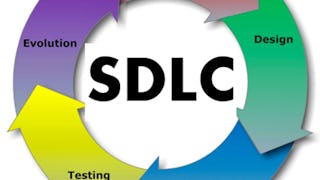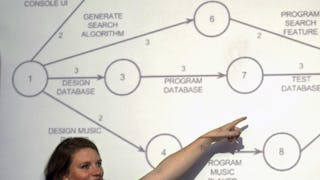User Requirements Documents
Most popular
 Status: Free TrialFree TrialU
Status: Free TrialFree TrialUUniversity of Minnesota
Course
 Status: Free TrialFree TrialU
Status: Free TrialFree TrialUUniversity of Minnesota
Specialization
 Status: Free TrialFree TrialU
Status: Free TrialFree TrialUUniversity of Minnesota
Course
 Status: Free TrialFree TrialU
Status: Free TrialFree TrialUUniversity of Colorado System
Specialization
Trending now
 Status: Free TrialFree TrialU
Status: Free TrialFree TrialUUniversity of Minnesota
Specialization
 Status: Free TrialFree Trial
Status: Free TrialFree TrialSpecialization
 Status: Free TrialFree TrialU
Status: Free TrialFree TrialUUniversity of Minnesota
Course
 Status: PreviewPreviewU
Status: PreviewPreviewUUNSW Sydney (The University of New South Wales)
Course
New releases
 Status: Free TrialFree Trial
Status: Free TrialFree TrialCourse
 Status: Free TrialFree TrialU
Status: Free TrialFree TrialUUniversity of Washington
Course
 Status: Free TrialFree Trial
Status: Free TrialFree TrialCourse
 Status: Free TrialFree Trial
Status: Free TrialFree Trial
Filter by
SubjectRequired *
LanguageRequired *
The language used throughout the course, in both instruction and assessments.
Learning ProductRequired *
LevelRequired *
DurationRequired *
SubtitlesRequired *
EducatorRequired *
Results for "user requirements documents"
 Status: NewNewStatus: Free TrialFree Trial
Status: NewNewStatus: Free TrialFree TrialSkills you'll gain: Project Implementation, E-Commerce, System Implementation, Case Studies, Business-To-Consumer, Solution Architecture, Order Management, User Requirements Documents, Technical Documentation, Project Management, Customer experience strategy (CX), Quality Assurance, Project Planning
Beginner · Course · 1 - 4 Weeks
 Status: Free TrialFree TrialU
Status: Free TrialFree TrialUUniversity of Minnesota
Skills you'll gain: Business Systems Analysis, Systems Analysis, Requirements Analysis, Business Requirements, Business Systems, User Requirements Documents, Process Analysis, Business Process Modeling, Dataflow
4.8·Rating, 4.8 out of 5 stars560 reviewsBeginner · Course · 1 - 3 Months
 Status: Free TrialFree TrialU
Status: Free TrialFree TrialUUniversity of London
Skills you'll gain: Web Applications, Interactive Data Visualization, User Interface (UI), JavaScript Frameworks, Responsive Web Design, Full-Stack Web Development, Front-End Web Development, Application Development, Javascript, Databases, User Requirements Documents, Real Time Data
4.2·Rating, 4.2 out of 5 stars280 reviewsMixed · Course · 1 - 3 Months
 Status: NewNewStatus: Free TrialFree TrialU
Status: NewNewStatus: Free TrialFree TrialUUniversity of Washington
Skills you'll gain: Web Content Accessibility Guidelines, Browser Compatibility, User Story, HTML and CSS, GitHub, Microsoft Copilot, Web Development, Web Design and Development, Web Design, Application Deployment, Responsive Web Design, Git (Version Control System), Front-End Web Development, Development Testing, Debugging, User Requirements Documents, Semantic Web
Beginner · Course · 1 - 4 Weeks
 Status: Free TrialFree TrialU
Status: Free TrialFree TrialUUniversity of Alberta
Skills you'll gain: Project Planning, Sprint Planning, Risk Management Framework, Agile Software Development, User Story, Agile Methodology, User Requirements Documents, Functional Requirement, Agile Project Management, Requirements Analysis, Software Development
4.8·Rating, 4.8 out of 5 stars2K reviewsMixed · Course · 1 - 4 Weeks
 Status: NewNewP
Status: NewNewPPackt
Skills you'll gain: Penetration Testing, Cyber Security Assessment, Vulnerability Assessments, Data Security, Cybersecurity, Exploitation techniques, Test Tools, User Requirements Documents, Authorization (Computing), Technical Documentation, Computing Platforms, Requirements Analysis, Command-Line Interface, Technical Communication
Intermediate · Course · 1 - 3 Months
 Status: Free TrialFree TrialX
Status: Free TrialFree TrialXXi'an Jiaotong University
Skills you'll gain: System Testing, Database Design, User Interface (UI) Design, .NET Framework, UI Components, Databases, Software Design, ASP.NET, User Requirements Documents, Systems Development, Web Applications, C# (Programming Language), Application Development, Software Development
Mixed · Course · 1 - 3 Months







